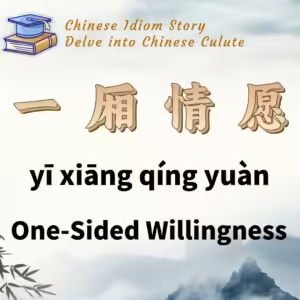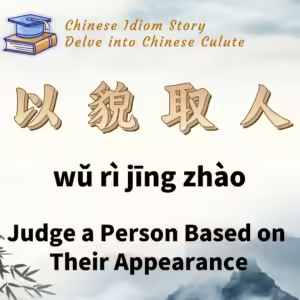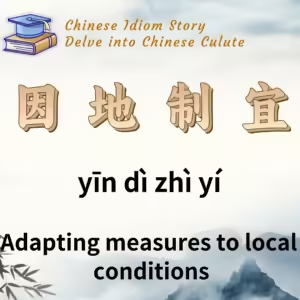
Chinese Idiom: 一厢情愿 (Yi Xiang Qing Yuan)
English Translation: One-Sided Willingness
pīn yīn: yī xiāng qíng yuàn
Idiom Meaning: This idiom refers to doing something or thinking about something solely based on one’s own wishes, without considering objective conditions or the wishes of others. “One side” (一厢) means one party or one side, and “willingness” (情愿) means being willing.
Historical Source: Baiyu Jing (One Hundred Parables Sutra)
Idiom Story: In ancient times, there was a foolish man who always acted without considering others’ wishes or the feasibility of his plans. One day, he went to the capital city and happened to see the king’s daughter, who was incredibly beautiful. After returning home, he became infatuated with the princess and dreamed of marrying her, to the point of falling ill with lovesickness.
When his relatives heard about his condition, they visited him and asked about the cause of his illness. He confessed his desire to marry the princess and said he feared he would die if he couldn’t marry her. To comfort him, his relatives said, “We can try to talk to the princess for you.”
After a few days, they returned and told him, “We spoke to the princess, but she doesn’t agree to marry you. You should stop thinking about her.” Unexpectedly, the lovesick man was overjoyed and said with a smile, “That’s great! If I go and ask her myself, she will surely agree.”
From this story, the idiom “one-sided willingness” (一厢情愿) emerged, describing a situation where someone is driven by their own desires without considering reality or others’ perspectives.






